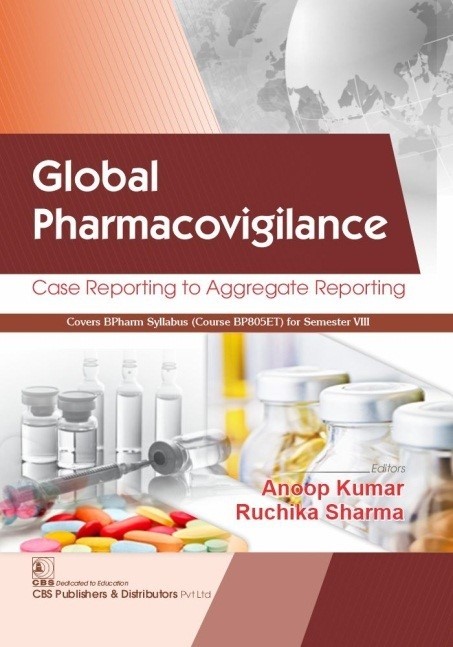Global Pharmacovigilance Case Reporting To Aggregate Reporting (Pb 2021)
Anoop Kumar PhD is currently Assistant Professor, Department of Pharmacology and Clinical Research, Delhi Pharmaceutical Sciences & Research University (DPSRU), New Delhi. Earlier, he was Assistant Professor, Department of Pharmacology and Toxicology, National Institute of Pharmaceutical Education and Research (NIPER), Raebareli, and Associate Professor and officiating Head, Department of Pharmacology, Indo-Soviet Friendship (ISF) College of Pharmacy, Moga, Punjab. He has also worked in the medical affairs and clinical research department of Sun Pharmaceutical Industries Ltd, Gurugram, and Translational Health Science Institute, Faridabad. He completed his master’s degree from Jamia Hamdard University, New Delhi, and PhD from Birla Institute of Technology, Mesra, Ranchi, as a DST Inspire Fellow. He is an expert member of the board of studies of the clinical research programme of IKGPTU, Jalandhar, Punjab (2019-2021) and Drug Discovery Hackathon 2020, joint initiative of AICTE, CSIR and Government of India. He has written more than 50 research and review articles published in various international journals of repute, contribued 10 book chapters, filed 02 Indian patents; guided 30 postgraduate research students, and edited a book COVID-19: Current Challenges and Future Perspectives. ... Read more Read less
It also covers the syllabus for semester II of MPharm–Pharmacology, year 5 of PharmD, and semester II of MS (Pharm.) Pharmacology, Pharmacy Practice, and Clinical Research of NIPERs. More importantly, this book will help the students who would like to start their careers in the field of pharmacovigilance
Global Pharmacovigilance Case Reporting to Aggregate Reporting is the first kind of textbook in pharmacovigilance for pharmacy students based on the recently prescribed syllabus of the Pharmacy Council of India (PCI). It is a single textbook that completely covers the syllabus for semester VIII of BPharm (Course BP805ET). It also covers the syllabus for semester II of MPharm–Pharmacology, year 5 of PharmD, and semester II of MS (Pharm.) Pharmacology, Pharmacy Practice, and Clinical Research of NIPERs. More importantly, this book will help the students who would like to start their careers in the field of pharmacovigilance.
The editors of this book have looked upon various aspects of pharmacovigilance. In most of the pharmaceutical industries or contract research organizations (CROs), pharmacovigilance is divided into two major teams, i.e. case processing and aggregate reporting teams. The case processing team is responsible for the processing of the cases whereas the aggregate reporting team analyses cases in a specific period of time. This book, comprising 13 chapters presented in a logical sequence, intends to bring to the readers more rigorous knowledge of these two areas.











